Cognitive Development Extra Challenge Geometry Worksheets for Ages 3-6
7 filtered results
-
From - To
Enhance your child's cognitive development with our engaging Geometry Extra Challenge Worksheets tailored for ages 3-6! Designed to spark curiosity and promote critical thinking, these worksheets introduce foundational geometric concepts through fun, interactive activities. Children will explore shapes, patterns, and spatial awareness while honing essential problem-solving skills. The creative exercises encourage independent learning, making geometry enjoyable and accessible. Perfect for parents and educators seeking to provide an enriching learning experience, our resources foster curiosity and build a solid mathematical foundation. Download now and watch your little ones thrive in their comprehensive understanding of geometry while having a blast!
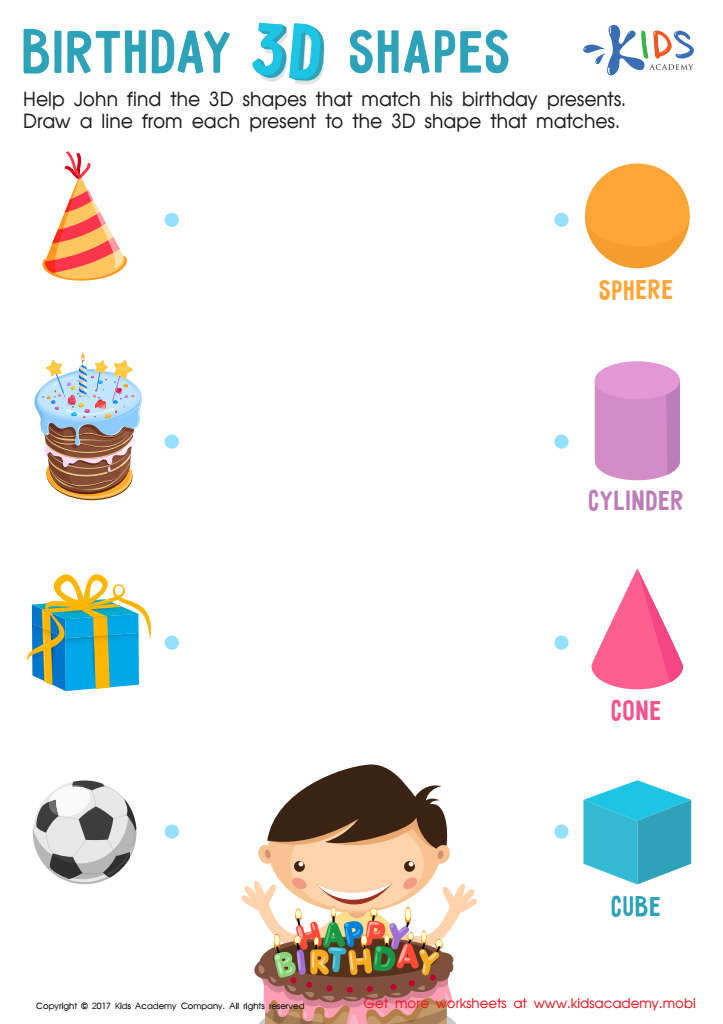

Birthday 3D Shapes Worksheet
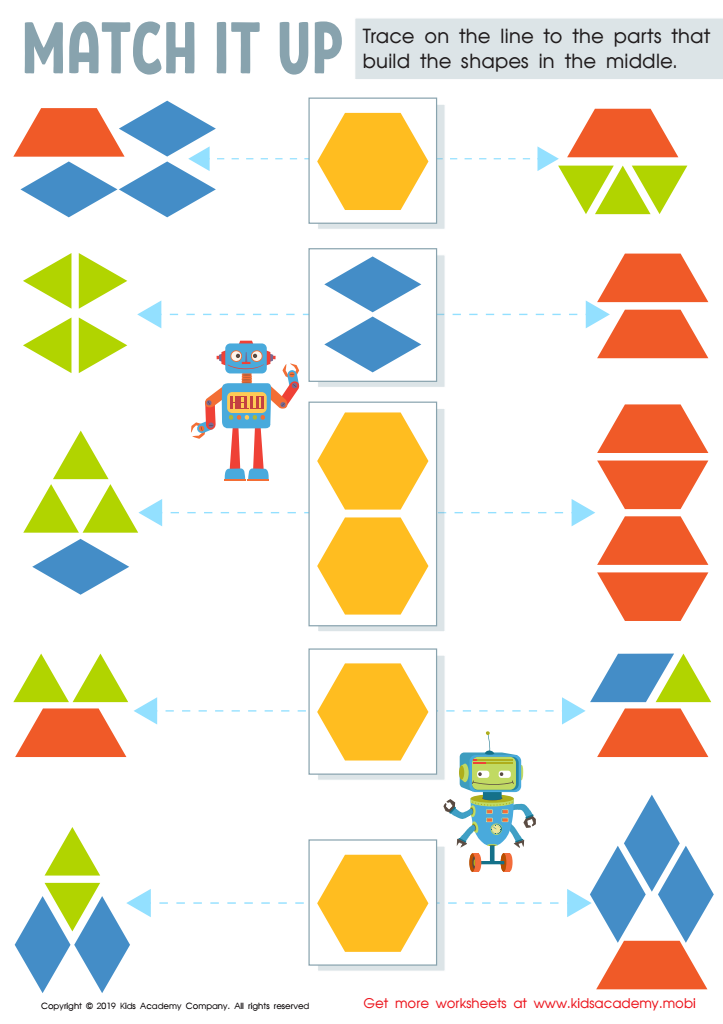

Match It up Worksheet
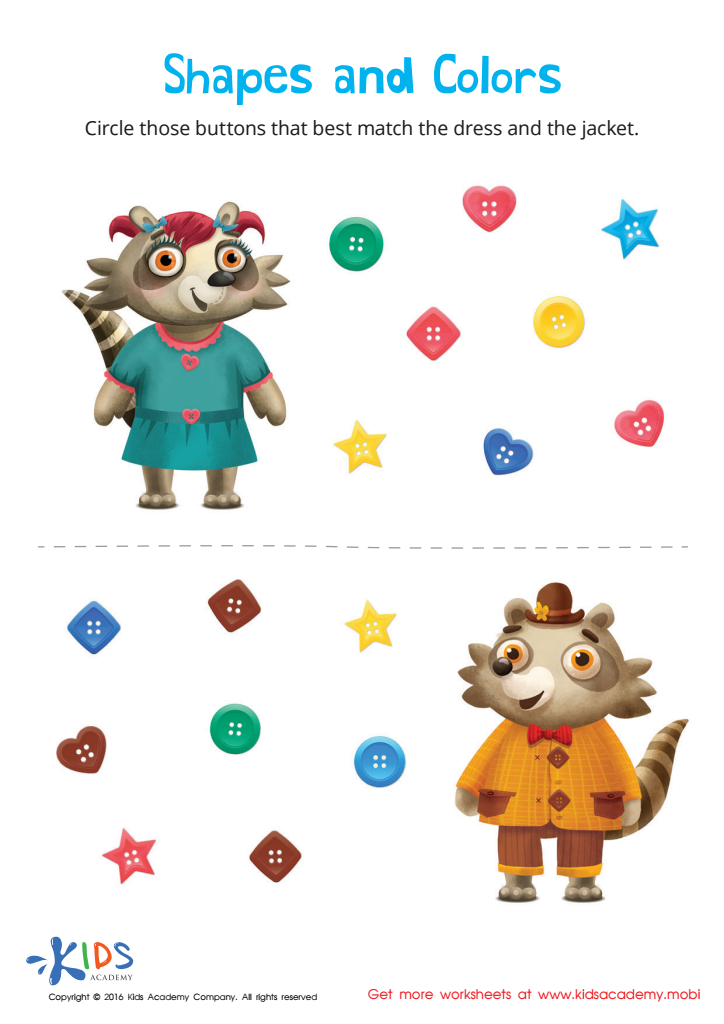

Matching: Shapes and Colors Worksheet
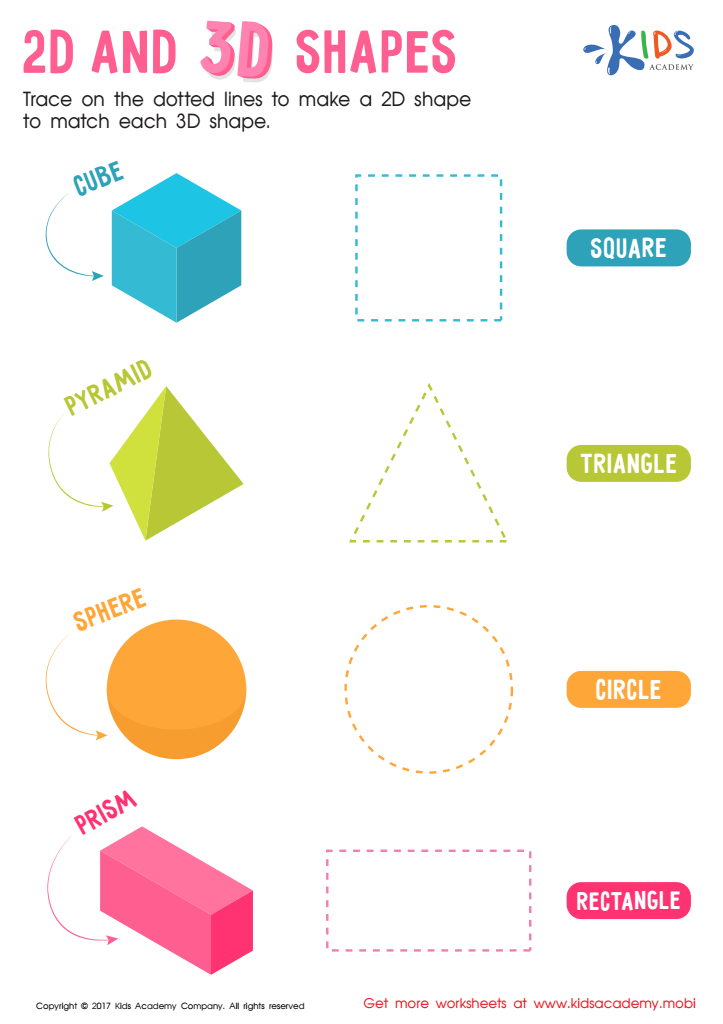

2D and 3D Shapes Worksheet
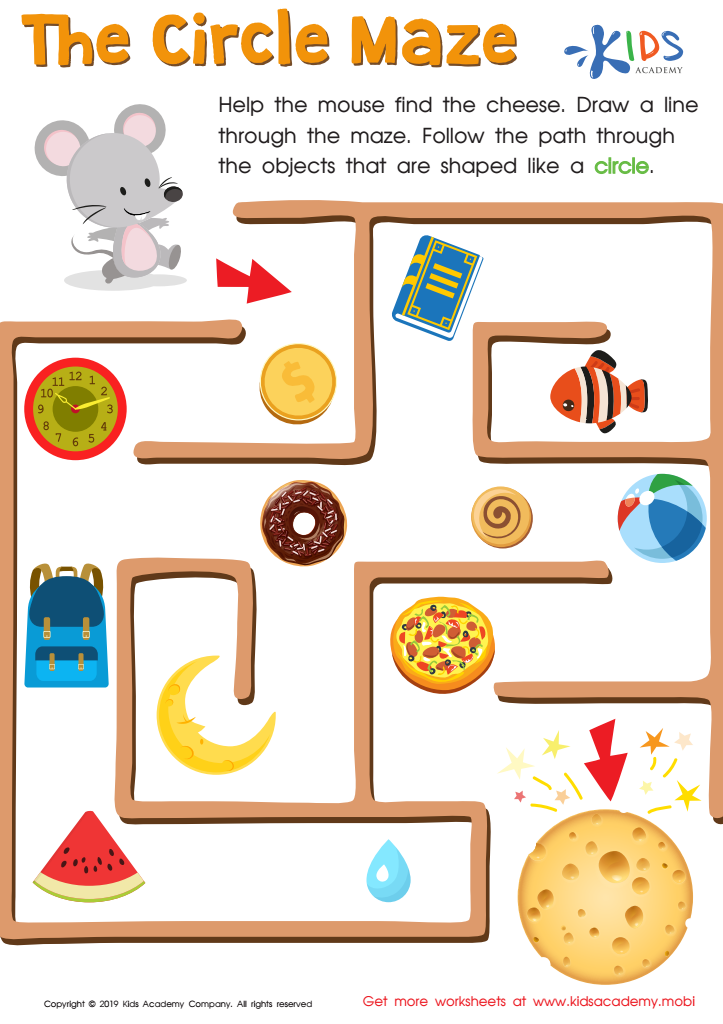

The Circle Maze Worksheet
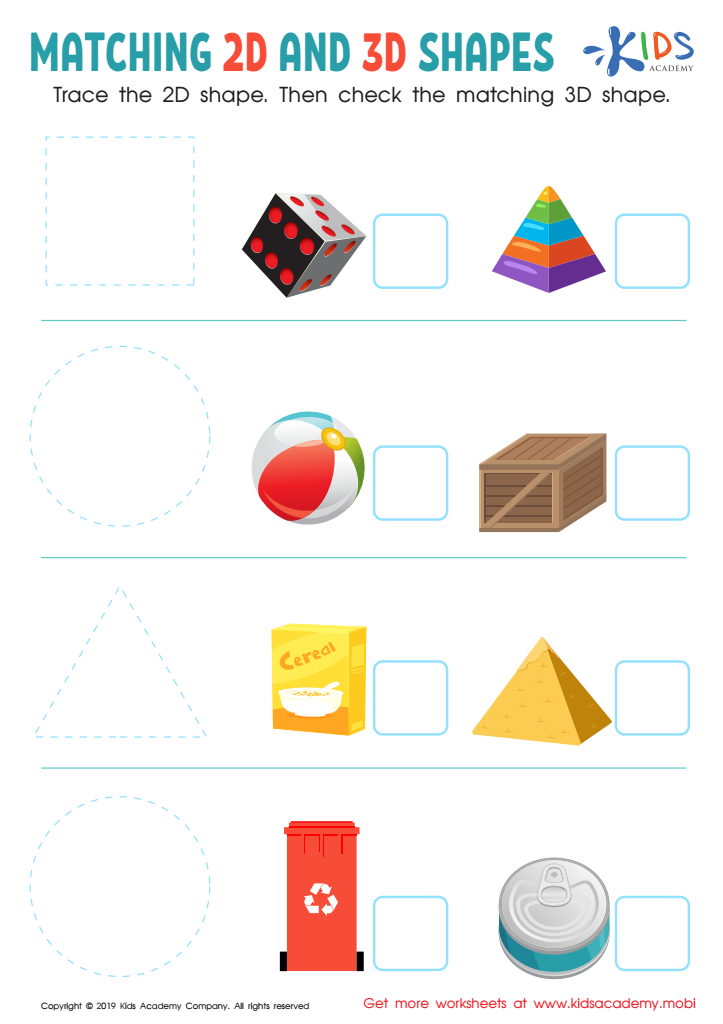

Matching 2D and 3D Shapes Worksheet
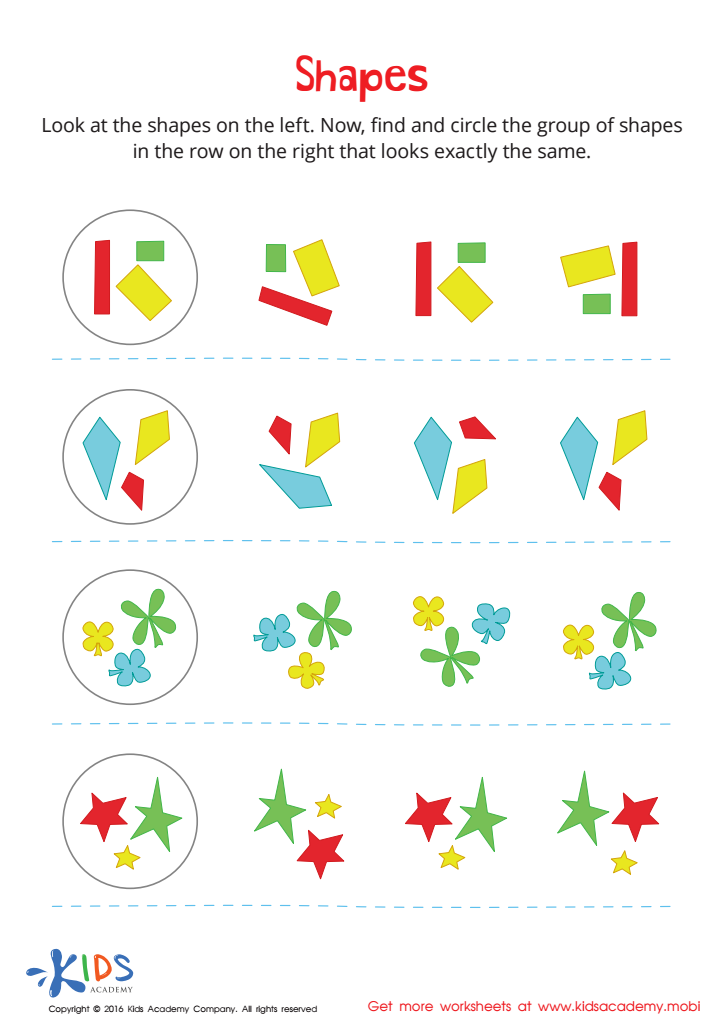

Shapes Worksheet
Parents and teachers should prioritize Cognitive Development Extra Challenge Geometry for ages 3-6 because it lays a vital foundation for critical thinking and problem-solving skills. At this developmental stage, children are naturally curious and eager to explore their environments. Introducing geometric concepts plays a key role in helping them understand spatial relationships, patterns, and shapes. This early exposure fosters cognitive flexibility, which is essential for advanced mathematical reasoning later on.
Moreover, engaging with geometry enhances a child's attention to detail and visual perception, skills that are applicable across various academic subjects. Activities that challenge children’s understanding of geometry encourage them to think critically and creatively, pushing them to persevere through complex tasks. This can lead to greater confidence in their abilities.
Additionally, incorporating fun, challenging geometry exercises into learning encourages collaborative play and communication among peers. Such interactions help develop social skills like sharing, taking turns, and discussing different solutions.
Ultimately, laying this foundational understanding of geometry not only nurtures cognitive development but also prepares children for future academic challenges, fostering a lifelong love for learning. Therefore, it's crucial for parents and teachers to embrace these opportunities in early education.
 Assign to My Students
Assign to My Students






























